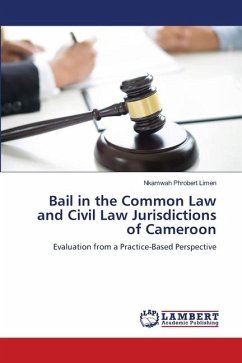
The Dilemma of Good Faith in the Law of Contract
Versandkostenfrei!
Versandfertig in 6-10 Tagen
29,99 €
inkl. MwSt.

PAYBACK Punkte
15 °P sammeln!
This book generally talks about the ever-changing role of good faith in the law of contract in countries highly influenced by common law jurisprudence. Historically, the common law has been known not to be receptive of good faith in the law of contract, it being argued that it has no place in contract law poll. The rationale for this being that good faith once accepted into the law of contract will destroy the whole fabric of contract law, pull down long-established principles of contract law, which we have known since time immemorial. These guarded principles include the freedom and sanctity ...
This book generally talks about the ever-changing role of good faith in the law of contract in countries highly influenced by common law jurisprudence. Historically, the common law has been known not to be receptive of good faith in the law of contract, it being argued that it has no place in contract law poll. The rationale for this being that good faith once accepted into the law of contract will destroy the whole fabric of contract law, pull down long-established principles of contract law, which we have known since time immemorial. These guarded principles include the freedom and sanctity of contracts, caveat subscription rule, party autonomy, etc. But the commercial world has opened up to some chilling legal realities about the role of good faith in the law of contract, running right from its inception phase to its conclusion.It cannot be denied that the parties to a contract are bond to act in good faith towards fulfillment of that which they agreed, irrespective of whethertheir contract contains a clause to that. This duty is in several instances implied by law.












